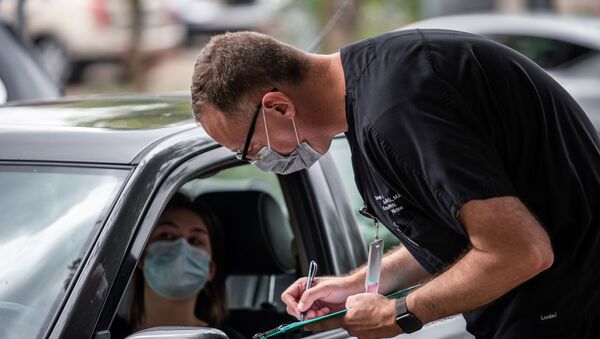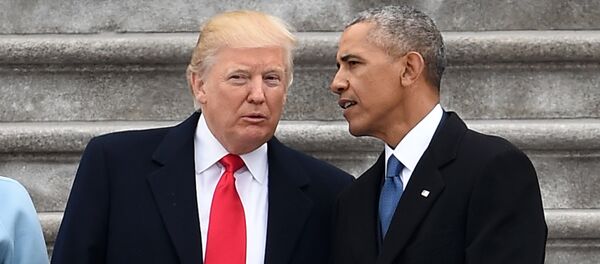The US has been showing the biggest numbers in terms of new COVID-19 cases recently, breaking previous records set during the epidemic's spike in April. Over 64,000 new cases were registered on 10 July, almost a week after a major celebration in the US, becoming a new anti-record for the country.
The arguments about the cause for the spike continue, but Patricia Davidson, dean of the Johns Hopkins University School of Nursing, believes a variety of factors led to the current situation in the United States. She indicates that many states in the US rushed to reopen in order to address the "broad economic devastation", while the situation with the pandemic on the ground hasn't changed enough. People had hoped that the virus spread would bend as intended and that the rise of the infections could be tamed without vaccines or "herd immunity", the pundit suggests, adding that the coronavirus once again proved that it has "its own rhythm and cadence".
"We cling to glimmers of hope and mental models of how the virus should behave. Clearly, the COVID-19 virus is not behaving like a seasonal flu and messages about prevalence of the virus in certain age groups has led to a level of recklessness, and we are seeing the impact of this in the increasing numbers of cases and deaths", Davidson says.
The dean further notes that US states should have been using data on the virus spread in making decisions to reopen and that now medical personnel, "who have worked tirelessly and in extenuating circumstances", has to brace for a new wave of infections, increasing their "resilience, workforce and [boosting] supplies". Davidson underscores that many are looking at the spiking numbers of daily infections with "dread and horror", but nonetheless, she leaves room for cautious optimism.
"All we can do is [to] prepare for the worst, but hope for the best. Finding new ways to foster economic growth in this new world order will also be critically important", the healthcare expert concludes.
The ongoing sharp rise in the COVID-19 infections first emerged in the middle of June amid two ongoing processes - country-wide anti-racism protests and continuing reopening of the state economies, reaching even higher rates of infections by the end of the month.
The Trump administration, often blamed over its handling of the pandemic, devised guidelines for the US states that should have helped their governors to understand whether or not their constituencies are ready to lift some of the lockdown measures. However, the White House gave the governors the right to make the final decision, thus enabling them to lift lockdowns even if formally their state didn't meet the criteria.



